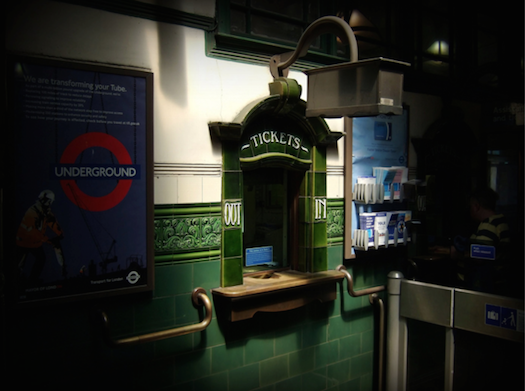Radio Tomorrow with James Cridland
Greetings from the bowels of the London Underground. There’s no air-conditioning down here, and therefore it’s hot and relatively unbearable: but one thing that’s making it a little more bearable is Iggy Pop, who is currently playing me the most random choice of music tracks on his radio show.
I’m listening to him on the BBC’s brand new iPlayer Radio app. Sorry, rest of the world, you can’t get hold of it: but the app’s new big feature is that you can download the BBC’s radio programs to your mobile phone and listen whenever you like. Including – and this is important – the music programs.
It’s a brand new thing, and I gather it’s come with a lot of wailing and gnashing of teeth in terms of music rights: but it’s clearly a good thing to do. I’m now listening to a lot more BBC Radio than I used to, simply because I can now listen on these interminable 30-minute stretches underground, where FM radio and mobile data fail to penetrate.
Sure, I can download music from Spotify or Google Play. But with the BBC iPlayer Radio app, it’s free; and it gives me more than just dumb music tracks – it gives me the curation and the personality with it. (And all at 320kbps too!)
It’s another example of how radio is becoming more multi-platform. The UK’s already the most multi-platform radio environment in the world, with less than 55% of all listening happening on an FM or AM radio. The rest is DAB (mostly), through the TV, and the internet. And this means lots of opportunity for change.
London’s new rock station Xfm is to undergo a rumoured transformation later this year to become a national DAB service: its owners, Global, are apparently spending the cash on a few high-profile DJs and changing the station’s name to be closer to some of their existing brands. If the rumours are true, Global is investing in personality – the very thing that makes broadcast radio different.
Other stations are changing, too – Absolute Radio, run by Bauer Media, has gained an FM outlet in the West Midlands; Bauer are also changing two stations in Liverpool, too, according to a format change request they’ve put into Ofcom, the UK regulator. Yep, formats are regulated here.
And I just caught up with the folks at UTV, who are launching a set of new talk radio stations nationally on DAB, as well as returning Virgin Radio to the UK airwaves. They’re set to go live in Q2 next year. That’s a proper, serious investment in a bunch of new services.
What’s exciting about all that is there’s positive change in radio again. Perhaps not entirely surprisingly, our industry grew by 6% in revenue terms last year. If Beats 1 is making radio ‘cool again’ in the US, then radio appears to be getting its mojo back over here, too. There’s light at the end of the tunnel.
 James Cridland is a radio futurologist, and is Managing Director of media.info, a companion website to radioinfo and AsiaRadioToday.
James Cridland is a radio futurologist, and is Managing Director of media.info, a companion website to radioinfo and AsiaRadioToday.
He has served as a judge for a number of industry awards including the Australian ABC Local Radio Awards, the UK Student Radio Awards, and the UK’s Radio Academy Awards, where he has also served on the committee. He was a founder of the hybrid radio technology association RadioDNS.
James is one of the organisers of nextrad.io, the radio ideas conference each September, and is also on the committee of RadioDays Europe. He writes for publications including his own media.info, Radio World International and RAIN News.
James lives in North London with his partner and a two year-old radio-loving toddler. He very, very much likes beer.
Radio Tomorrow is a trade mark of Radiowise Productions Pty Ltd.

